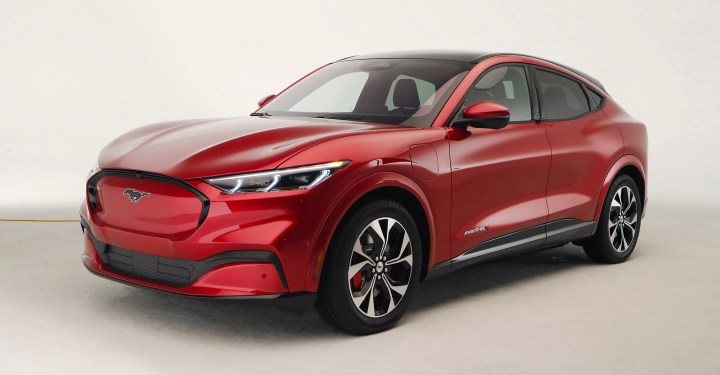BUSINESS MAVERICK OP-ED
Mainstream electric vehicles adoption may become a reality sooner than expected

While electric vehicles are coming and maybe coming faster than we thought, our reasons for adoption are different now.
Could South Africa and Africa see a more rapid adoption of electric vehicles (EVs) than originally predicted? The answer is yes, but for some unique reasons.
It may be strange to predict a more rapid adoption of electric vehicles when oil remains at record lows and petrol costs less than R14 a litre. But it may be less about the price of oil and more about the quality and availability, and what our export markets are doing with it, that will influence our EV adoption.
To start abroad, EVs are taking the main stage in the global auto market. New battery technology is making range anxiety less of a concern, automakers are investing heavily in all types of electric automation, including trucks and bikes, and consumers seem keener than ever before to try electric vehicles.
There is also the looming threat of a general ban on internal combustion engines (ICE) in certain developed markets. Britain has widely publicised its intention to ban all traditional engines and even hybrid vehicles in 2035, while China is said to be considering the same deadline, albeit for only 60% of all local vehicles sold. Norway, France, the Netherlands, Denmark and even Sri Lanka have added their voice, and set a firm deadline to the end of internal combustion engines.
Keep in mind that South African automakers export to many of these countries and have to build vehicles that their export markets – be it in Europe, Asia or elsewhere – want to or can buy.
Back on local soil, South Africans have shown their willingness to follow global trends, but when it comes to ICE and their EV brothers, they seem to lag far behind.
For one, South Africa has not yet developed clear policy guidelines on how it would support the introduction of electric vehicles and the supporting infrastructure. Elsewhere in the world, EVs were supported – at least initially – by tax breaks to customers and manufacturers and a policy regime that allowed vehicles to be imported, built and sold at competitive prices.
While many of these policies in developed markets have already expired, they gave EVs the necessary jumpstart to now be considered alongside their ICE counterparts.
It does not seem as though the lack of a clear EV policy is in any way related to a push for fossil fuels. Indeed, South Africa is falling behind rapidly with its fuel refining capabilities. At a maximum quality level of Euro 4, we are more than a decade behind our main export markets in Europe and elsewhere, and there is already a major discrepancy between the best technology we build for export markets and the technology that we can offer South African and African consumers.
And it is not only the fuel quality that is of concern. In countries such as Nigeria, fuel supply remains erratic at best. At the same time, the widespread sale of grey imported vehicles means that many African countries are crudely removing the fuel sensors and catalytic converters on imported used vehicles to allow them to run on low-quality petrol and diesel, often leading to a level of emissions well below Euro 0.
So, it is not surprising to find many African markets starting to enquire about EVs, not for its novelty, but as a way to circumvent their reliance on fossil fuels of poor quality. Some have even started taking action, with stories of Kenyan entrepreneurs importing used EVs and Rwanda partnering with a vehicle manufacturer to assemble and introduce EVs for a ride-hailing service.
Yes, it is going to take a while to build the necessary charging infrastructure, especially considering Eskom’s current challenges. Yes, we need strong policy guidance, and yes, we are going to struggle to make the business case at less than $40 a barrel of crude oil.
But our consumers are exposed to the technology available elsewhere, oil is sure to increase in price again and our current automotive policy – the Automotive Production and Development Programme ends in 2035, the year that major countries like Britain will ban ICE.
So EVs may see a more rapid introduction and adoption than originally thought, and even if you do not share that view, make sure that EVs and the necessary charging infrastructure receive the necessary high-level management attention that it requires. BM
Neale Hill is the MD of Ford Motor Corporation of Southern Africa.


















 Become an Insider
Become an Insider